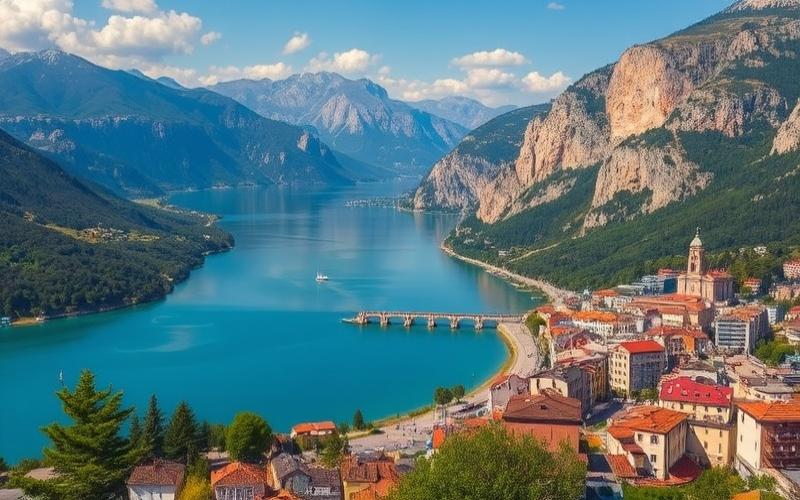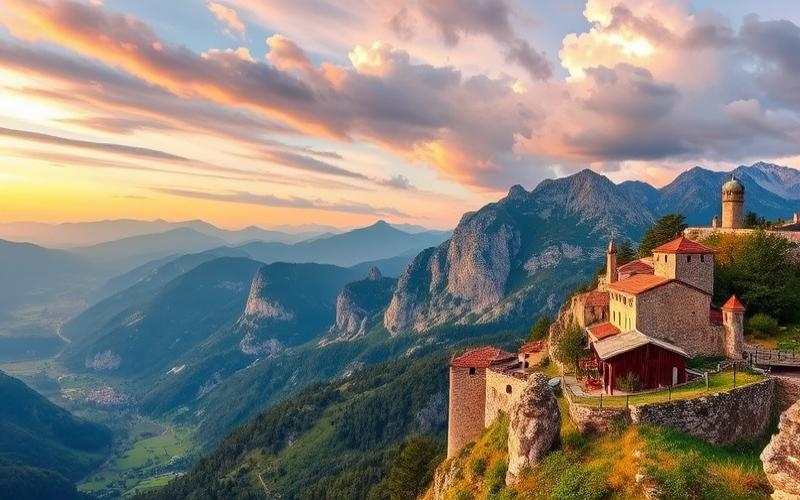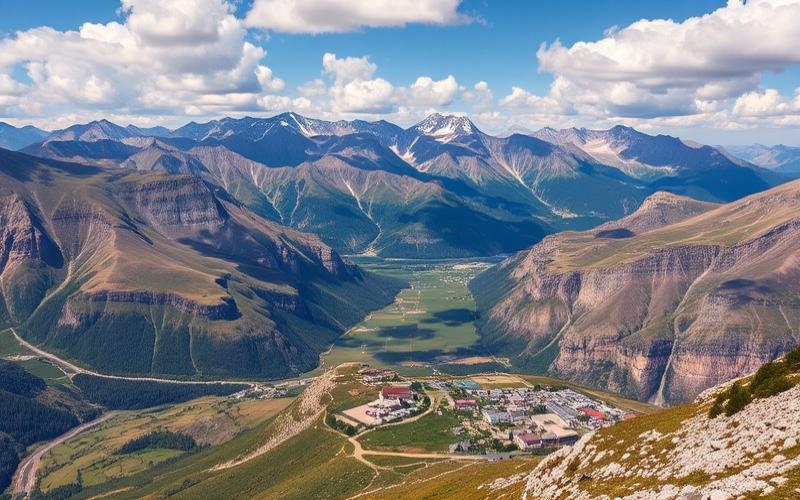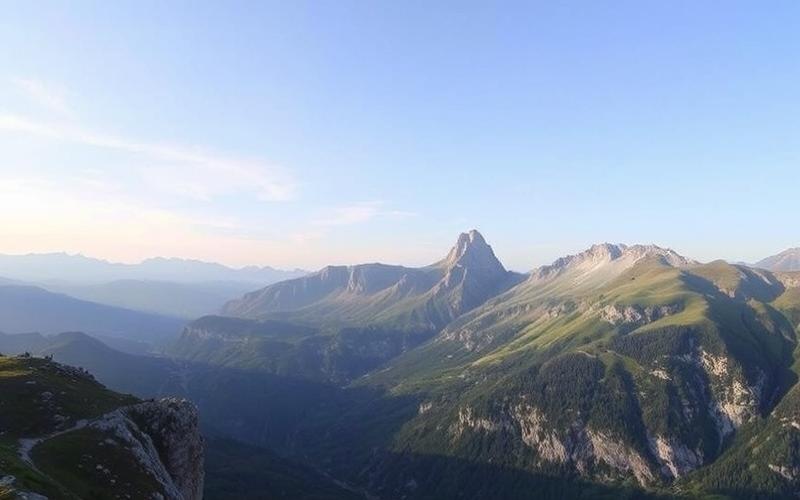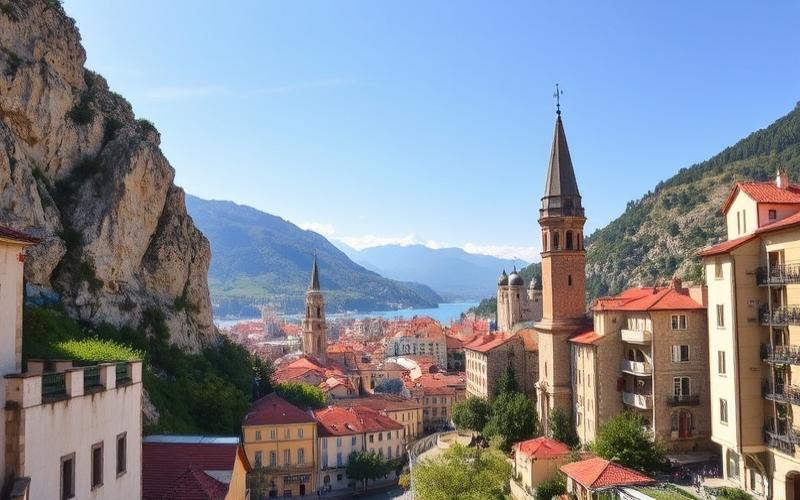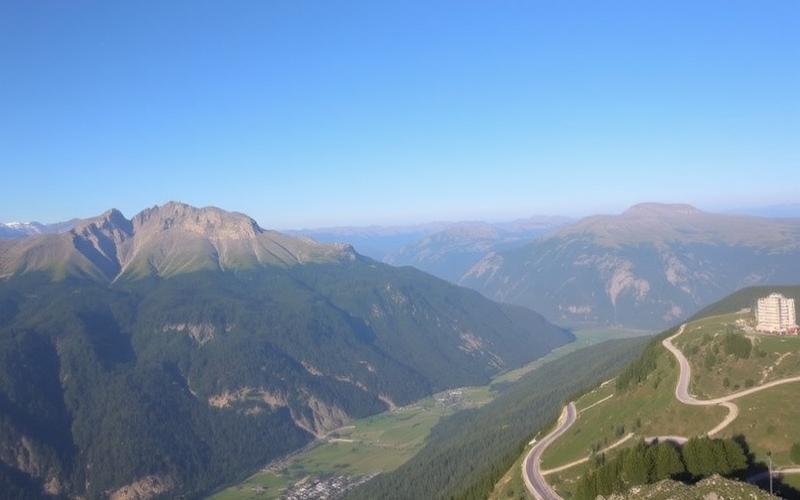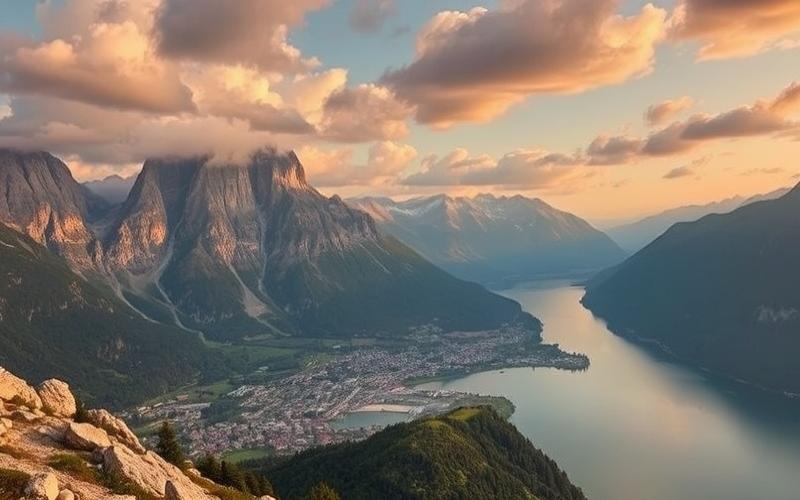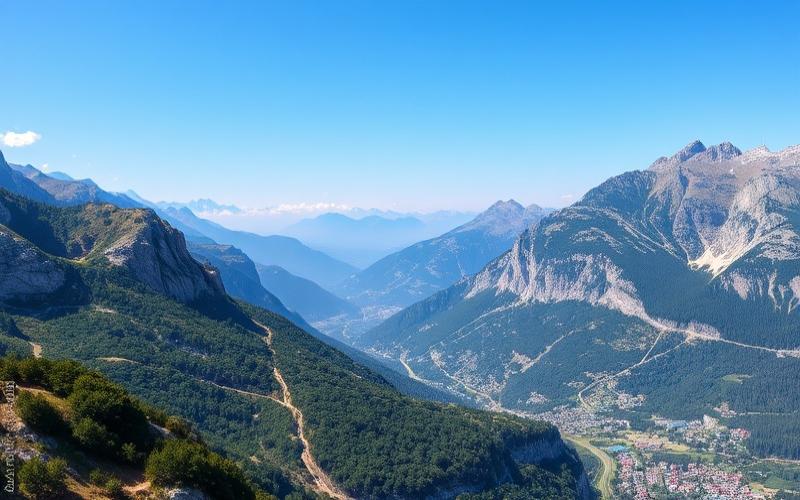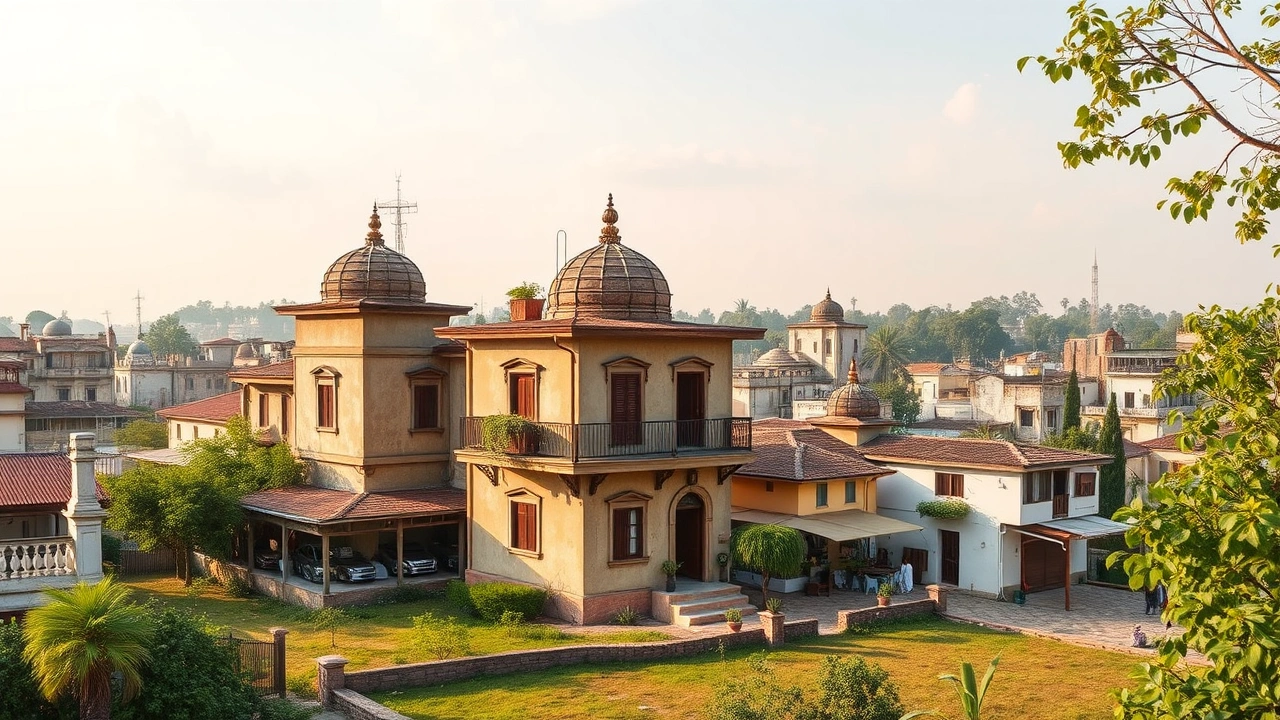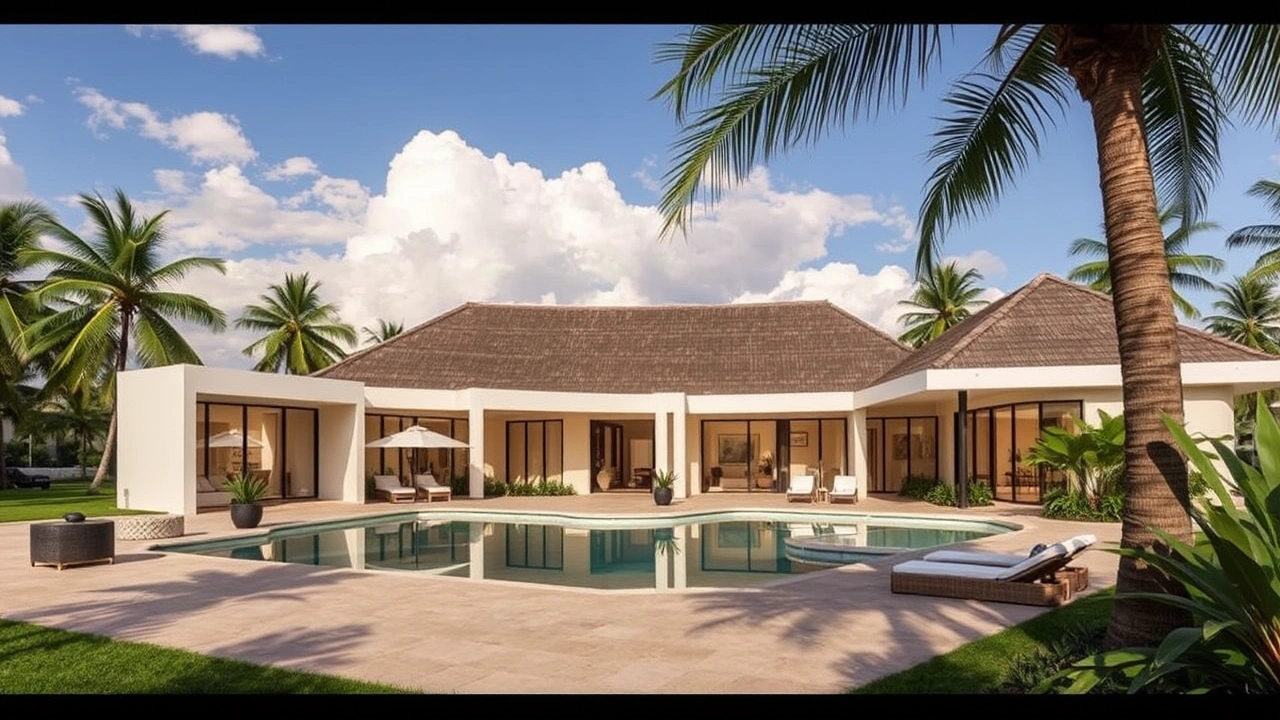
 Published on and written by Cyril Jarnias
Published on and written by Cyril Jarnias
Montenegro, a small Balkan country bordered by the Adriatic Sea, is attracting more and more foreign investors thanks to its idyllic setting and economic potential. If you’re considering purchasing real estate in this Mediterranean gem, it’s crucial to understand the local regulations regarding foreign property ownership. This article will guide you through the essential aspects you need to know to make your investment with complete peace of mind.
A Warm Welcome for Foreign Investors
Montenegro has adopted an open policy towards foreign investors, recognizing their crucial role in the country’s economic development. Since its independence in 2006, the Montenegrin government has established a legal framework favorable to foreign investments, guaranteeing the same rights and protections to both local and international investors.
This approach is reflected in the Foreign Investment Law, which states that foreign investors can acquire real estate in Montenegro with virtually no restrictions. Whether for personal or commercial use, foreigners can own land, houses, apartments, or commercial premises under the same conditions as Montenegrin citizens.
However, there are a few important nuances to be aware of. For example, foreign legal entities can only acquire real estate if they establish a subsidiary in Montenegro. Furthermore, certain restrictions apply to the purchase of agricultural land by foreigners.
Good to Know:
Montenegro offers a favorable environment for foreign investors, with few restrictions on real estate ownership. However, it is advisable to thoroughly research the specifics related to your personal or professional situation.
Unlike some countries where property acquisition by a foreigner can be a real ordeal, Montenegro has implemented a relatively simple and transparent process.
The first step is to obtain a tax identification number (PIB) from the Montenegrin tax administration. This number is essential for any real estate transaction and can be obtained quickly, usually within a few days.
Once the property is chosen and an agreement is reached with the seller, a sales contract must be drafted. It is highly recommended to hire a local lawyer to ensure all legal aspects are properly covered. The contract must be certified by a Montenegrin notary, who will also verify the legality of the transaction and ensure the property is free of any encumbrances.
Registering the property with the cadastre (Katastar) is the final step of the process. This registration formalizes your status as the owner and allows you to fully enjoy your rights over the property.
It is important to note that, although the process is relatively simple, it can take several weeks, or even a few months, to be finalized. Patience is therefore required, but it’s worth the effort.
Good to Know:
The real estate acquisition process in Montenegro is relatively simple for foreigners, but it is recommended to work with local professionals (lawyer, notary) to ensure all steps are correctly followed.
Rights and Responsibilities: What You Need to Know
As a foreign owner in Montenegro, you benefit from the same rights as local citizens regarding real estate property. This includes the right to use, rent, sell, or transfer your property as you see fit.
However, these rights also come with responsibilities that are crucial to understand and respect:
- Property Taxes: Owners are required to pay an annual property tax, with rates varying between 0.25% and 1% of the property’s value, depending on the municipality.
- Capital Gains Tax: If you sell the property, a 9% real estate capital gains tax applies to the difference between the purchase price and the sale price.
- Maintenance and Renovation: If you own a property in a condominium building, you will need to contribute to the maintenance costs of the common areas.
- Compliance with Local Regulations: You must comply with local urban planning laws and regulations, especially for any major construction or renovation projects.
It is also important to note that if you plan to rent out your property, you will need to comply with specific regulations regarding tourist rentals. This usually involves obtaining a license and paying taxes on rental income.
As a foreign owner, you also have the right to apply for a temporary residence permit in Montenegro. This permit is generally valid for one year and can be renewed. It does not automatically grant the right to work in Montenegro, but it can be a first step towards more permanent residence if you are considering settling in the country.
Good to Know:
As a foreign owner in Montenegro, you benefit from extensive rights but must also respect certain obligations, particularly tax-related ones. It is crucial to fully understand these aspects to avoid any future problems.
Expert Tips for a Successful Investment
Drawing on my experience in assisting foreign investors, I can offer you some valuable tips to maximize your chances of success:
1. Do Your Homework: Before you begin, take the time to thoroughly study the Montenegrin real estate market. Prices and opportunities can vary significantly by region. The Adriatic coast, for example, tends to be more expensive but offers interesting rental potential, while the interior of the country may offer opportunities at more affordable prices.
2. Build a Trusted Local Team: A local lawyer, real estate agent, and accountant will be your best allies. They know the subtleties of the local market and legislation and can help you avoid many pitfalls.
3. Carefully Check Property Titles: Montenegro has undergone significant political and economic changes in recent decades. It is crucial to ensure that the property you are buying has a clear ownership history and is free of disputes.
4. Consider Strategic Investment Opportunities: The Montenegrin government offers attractive incentives for certain types of investments. For example, the citizenship by investment program, although under review, has attracted many foreign investors in recent years.
5. Think Long-Term: Montenegro is a country experiencing strong growth, with prospects for European Union membership. A wise investment today could prove very profitable in the years to come.
6. Respect the Local Culture: Montenegro is a country proud of its history and traditions. As a foreign investor, showing respect and interest in the local culture can greatly facilitate your relationships and business dealings.
Good to Know:
A successful investment in Montenegro requires good preparation, a trusted local team, and a long-term vision. Do not underestimate the importance of understanding and respecting the local culture.
Future Prospects: An Expanding Market
The Montenegrin real estate market offers promising prospects for foreign investors. According to data from the Central Bank of Montenegro, foreign direct investment in real estate has seen steady growth in recent years, reaching 177.9 million euros in 2024, an increase of 15% compared to the previous year.
This positive trend is explained by several factors:
- The country’s tourism potential, with its beautiful beaches and picturesque mountains, attracts more and more visitors each year.
- The government’s efforts to improve infrastructure and attract foreign investment.
- The prospects of European Union membership, which could further stimulate the economy and the real estate market.
- Real estate prices that are still relatively affordable compared to other Mediterranean destinations.
However, like any investment, real estate in Montenegro also carries risks. The country’s heavy reliance on tourism can make the market vulnerable to external shocks, as demonstrated by the COVID-19 pandemic. Furthermore, the rapid development in some coastal areas raises environmental concerns that should be taken into account.
Despite these challenges, Montenegro remains an attractive destination for foreign real estate investors. With a cautious and well-informed approach, investment opportunities in this small Balkan country can prove to be very interesting.
Good to Know:
The Montenegrin real estate market offers promising prospects, but like any investment, it carries risks. Thorough analysis and a long-term strategy are essential for success.
Disclaimer: The information provided on this website is for informational purposes only and does not constitute financial, legal, or professional advice. We encourage you to consult qualified experts before making any investment, real estate, or expatriation decisions. Although we strive to maintain up-to-date and accurate information, we do not guarantee the completeness, accuracy, or timeliness of the proposed content. As investment and expatriation involve risks, we disclaim any liability for potential losses or damages arising from the use of this site. Your use of this site confirms your acceptance of these terms and your understanding of the associated risks.


